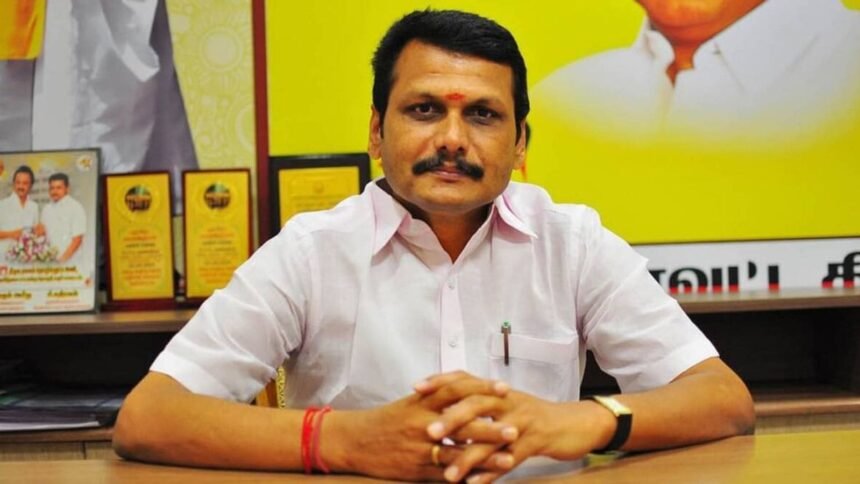The Supreme Court Tuesday slammed the M K Stalin government in Tamil Nadu for allegedly trying to prolong the trial of former minister V Senthil Balaji in the cash-for-jobs case by implicating around 2,000 people as accused, calling it a complete “fraud on the system”.
“Poor persons who were coerced by your minister or by his henchmen to pay something (Rs) 5,000, 10,000, 1 lakh, 2 lakh, you are more keen to prosecute them so that in the entire lifetime of the minister, (the) trial never comes to an end! That is your modus operandi! Completely fraud on the system… By implicating these so-called bribe givers, somebody trying to get his son employed, gave Rs 1 lakh, 2 lakh, you are making everyone an accused… 2,000 accused in 2 cases!” remarked Justice Surya Kant, presiding over a two-judge bench.
The bench, also comprising Justice Joymala Bagchi, was hearing an appeal by one Y Balaji, on behalf of the victims of the alleged scam. The plea challenged the March 28, 2025, Madras High Court order rejecting petitions against the orders of the trial court directing clubbing of four supplementary chargesheets filed in connection with the fraudulent recruitment in the Chennai Metropolitan Transport Corporation.
The high court, while dismissing petitions by Anti Corruption Movement against the clubbing of chargesheets, had noted that the offences formed part of the same transaction and could not be treated distinctly and that all chargesheets involved the same set of witnesses and documents. Noting that the number of accused stood at 2,202, the high court said holding separate trials would only delay the proceedings.
The Supreme Court, while referring to the four chargesheets, sought to know “…who are the alleged middlemen to whom money was paid, who are the officers who acted on the minister’s behest, and who were on the board of appointments or the officials who carried out these appointments?”
Senior advocate A M Singhvi, who appeared for the state, said the information was in another plea which was not listed before the court Tuesday. The bench directed that those matters also be listed before it for hearing again Wednesday.
Senior advocate Gopal Sankaranarayanan, who appeared for the petitioner, pointed out that the Supreme Court had in previous orders criticised the alleged attempts by the state to save the ruling Dravida Munnetra Kazhagam (DMK) leader.
Story continues below this ad
Senior advocate Amit Anand Tiwari, who also appeared for the state, said the petitioner had not approached the high court and was attempting “forum shopping”.
Case against Senthil Balaji
The allegations against Balaji concern the 2011-2016 period when he was transport minister in the then All India Anna Dravida Munnetra Kazhagam (AIADMK) government. In 2014-15, Balaji allegedly abused his official capacity and entered into a criminal conspiracy with the then managing directors of all state transport undertakings (STU) and other officers of transport corporations to obtain illegal gratification from candidates to recruit them as drivers, conductors, junior tradesmen, junior assistants, junior engineers, and assistant engineers.
The Enforcement Directorate (ED) registered a money laundering case against him and arrested him in June 2023, when he was minister for electricity, prohibition and excise, in the incumbent DMK government.
The Supreme Court granted bail to him on September 26, 2024, noting that the trial against him was unlikely to begin soon and that he had already spent over a year in custody. Just three days later, on September 29, 2024, he was reinstated as a Cabinet minister in the DMK government headed by Stalin.
Story continues below this ad
ED subsequently approached the Supreme Court seeking cancellation of his bail on the ground of influencing witnesses. Hearing the matter on April 23, the court took stern exception to his reinstatement, saying that one of the grounds on which he had sought bail was that he was no longer a minister and therefore, not in a position to influence the trial.
On April 23, the top court asked Balaji to decide whether he wanted to retain his Cabinet post or safeguard his bail in the ongoing case. He then decided to retain the bail and stepped down as minister.







